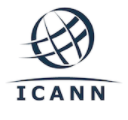- M3AAWG Messaging playlist on YouTube
- Selected Training Videos (also available on www.youtube.com/maawg)
- Selected Keynote Videos (also available on www.youtube.com/maawg)
Below are the M3AAWG published materials related to our messaging anti-abuse work. There is also a Messaging video playlist on our YouTube channel at www.youtube.com/maawg and there are a few selected videos on our website in the Training Videos and Keynotes Videos sections under the Meetings menu tab.
Best Practices
Operation Safety-Net: Best Practices to Address Online, Mobile, and Telephony Threats
Written in plain language by M3AAWG and the London Action Plan (LAP), Operation Safety-Net outlines the current and emerging threats faced by consumers, businesses and governments with recommended best practices to address these threats. For a brief overview of the document, see the brochure explaining the global depth and breadth of these best practices in the Supporting Documents section from the For the Industry menu tab.
M3AAWG Mobile Messaging Best Practices for Service Providers
These industry best practices are intended to help mitigate the abuse of mobile messaging (i.e., SMS, MMS and RCS), including text messaging and connected services. The guidelines outlined here will assist service providers and vendors in maintaining practical levels of trust and security across an open, globally-interconnected messaging environment.
M3AAWG Anti-Abuse Best Common Practices for Hosting and Cloud Service Providers
System abuse drains time and revenue for hosting and cloud providers, who must maintain constant vigilance to make sure their systems are not compromised and ensure that their customers are vigilant. This document categorizes types of abuse, suggests appropriate responses and reviews practices for dealing with customers and complaints. It provides current best common practices in use with the hosting, DNS and domain registration provider communities.
M3AAWG Best Common Practices for the Use of a Walled Garden, Version 2.0
These updated best practices outline the criteria for exit, entry, remediation and subscriber education when using a walled garden to remediate virus and bot infections in subscriber devices.
M3AAWG Sender Best Common Practices, Version 3.0
This document gives an overview of the current best common practices for sending commercial electronic messaging, focusing on the technical and practical policy aspects of these operations. The goal of these practices is to promote and enhance the transparency of senders maintaining legitimate messaging so that both individual recipients and mailbox providers are more easily able to distinguish legitimate messaging from messaging abuse.
Pages
Public Policy Comments
MAAWG Comments on National Broadband Plan Recommendation to Create a Cybersecurity Roadmap
MAAWG comments were submitted in response to U.S. Federal Communications Commission recommendations in September 2010.
The U.S. FCC’s Public Safety and Homeland Security Bureau (PSHSB) requested comment on the creation of a Cybersecurity Roadmap. The plan would identify vulnerabilities to communications networks or end-users and develop countermeasures and solutions in preparation for, and response to, cyber threats and attacks in coordination with federal partners.
MAAWG Response to National Strategy for Trusted Identities in Cyberspace
MAAWG offered comments on the U.S. Department of Homeland Security’s strategy in July 2010
The U.S. Department of Homeland Security’s draft plan is focused on maintaining a secure cyberspace, which is critical to the health of the economy and national security. It outlines how the federal government might address the recent and alarming rise in online fraud, identity theft, and misuse of information online.
MAAWG Comments on ARIN Draft Policy 2010-3 “Customer Confidentiality”
MAAWG submitted comments in March 2010. As recommended by MAAWG and others, ARIN changed course on this topic.
The initial draft policy would have allowed ISPs to hide the true customer of a domain name. The revised Version 2 policy that was implemented recognized the need for the customer name to remain in the SWIP and RWHOIS information.
Pages
M3AAWG Reports
DM3Z Blog
Updates and Commentary from the Messaging, Malware and Mobile Anti-Abuse Working Group
None at this time.
News
News Releases
MAAWG Provides Free Messaging Security Training: Releases DKIM Implementation Tutorial By Leading Experts, Invites Industry to Previously Closed Training Courses
MAAWG Hosts GSMA Security Group in Europe Industry Meeting Attacks Spam Across Platforms, Promotes International, Industry-wide Cooperation
Pages
Articles About M3AAWG
News from Identifier Technology Health Indicators (ITHI)

https://www.icann.org/news/blog/news-from-identifier-technology-health-i...
. . ."First, ICANN will organize another ITHI workshop at the M3AAWG meeting in October in Paris."
EXPERTS TO FCC: CHANGE COURSE ON BROADBAND PRIVACY RULES INDUSTRY GROUPS AND EXPERTS AGREE: THE FCC MUST CHANGE COURSE ON BROADBAND PRIVACY

Fixed Wireless Internet Service Providers Association
http://www.wispa.org/News/wispa_news_06-08-16_Experts_to_FCC
"A coalition of industry groups including WISPA, CTA, CTIA, and US Telecom today published a joint article in opposition to the FCC’s proposed new rules for broadband privacy protection . . . The Messaging, Malware and Mobile Anti-Abuse Working Group similarly warned that the rules as currently framed could inadvertently undermine cooperation and communication needed to secure the web from malware, viruses and hackers online. . . "



